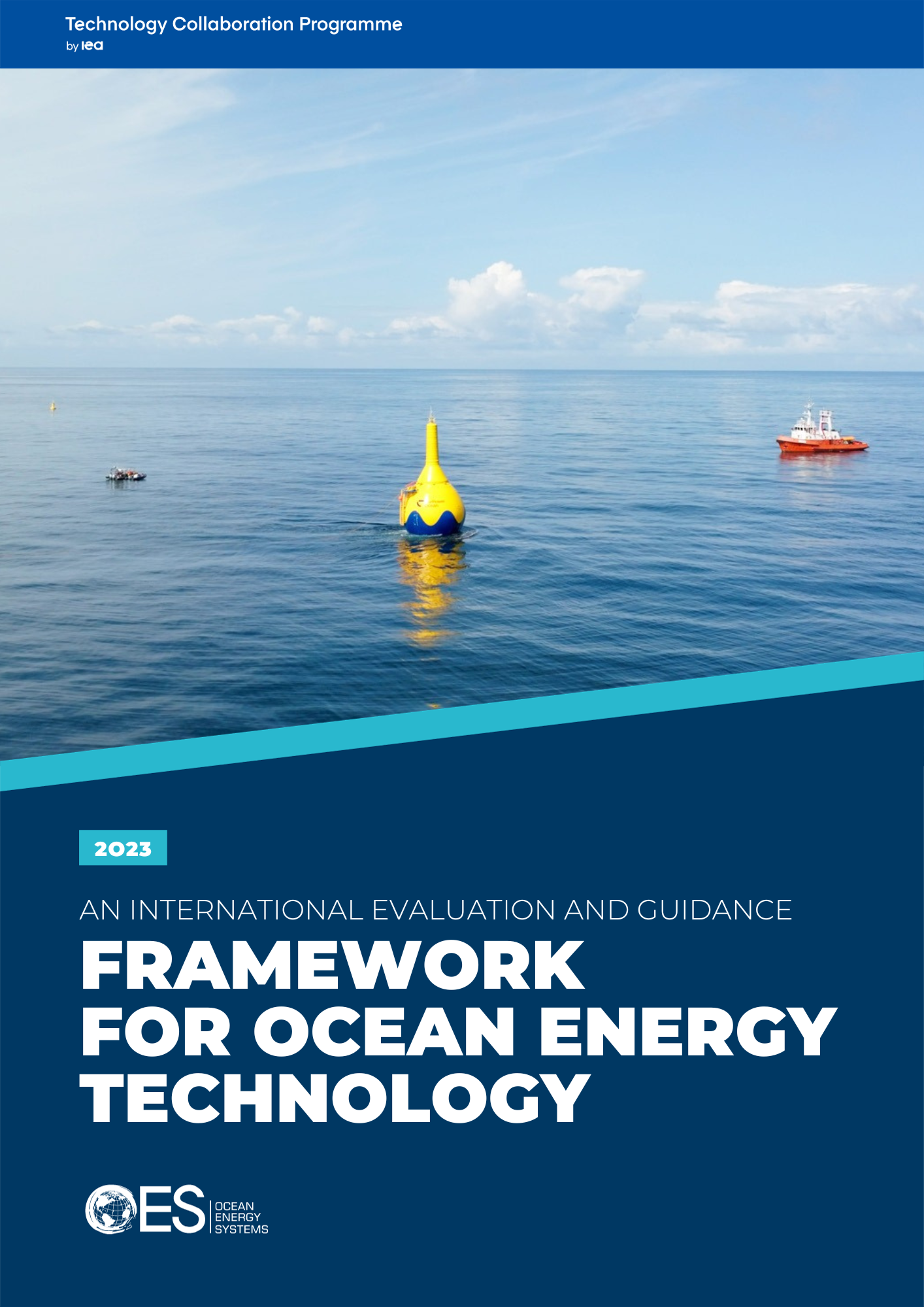Today the International Energy Agency’s Technology Collaboration Programme on Ocean Energy, launches a second edition of the report "AN INTERNATIONAL EVALUATION AND GUIDANCE FRAMEWORK FOR OCEAN ENERGY TECHNOLOGY", coinciding with the 48th IEA-OES Executive Committee Meeting, taking place on 23th-24th October in The Hague.
This updated report represents a significant evolution of the framework, now including Environmental Acceptability, a key consideration in technology development. This addition is an example of the document's responsiveness to user feedback and emerging industry needs.
International acceptance of a common approach to technology development and evaluation, as advocated by this updated report, provides clarity in the expectations from different stakeholders during each stage of development, fostering clearer communication among industry players, governments, and investors.
By standardizing the use of terminology and the technology evaluation process, the framework reduces ambiguity, building confidence and transparency in the ocean energy sector, a critical element in attracting investment and fostering growth. It also facilitates the allocation of funding to technologies with the highest potential for commercial success.
This updated report, an evolution of a previously published version, has been made possible through the dedicated leadership of the European Commission and delivered in partnership with Wave Energy Scotland (WES), the United States Department of Energy (DOE), Edinburgh University, Tecnalia and other representatives of the IEA-OES Executive Committee.
“The release of this document underscores the IEA-OES's dedication to advancing the ocean energy sector on a global scale while harmonizing and strengthening the industry's technical and evaluation processes” said
Matthijs Soede, Chairman of the IEA-OES. “It is really good that the guidelines now include the environmental acceptability, since this is becoming an increasingly important aspect of the decision making. Developers should already consider this at an early stage of the technology development”.
Jonathan Hodges from Wave Energy Scotland said: “Since the 1st Edition was published in 2021, public funders around the world have shared their positive experiences of adopting its recommendations. Funders speak of improved project proposals from technology developers who use the document, as well as strengthened ability to design funding calls, make efficient selections and demonstrate the impact of public funds in accelerating the maturity and attractiveness of ocean energy technologies. The 2nd Edition responds effectively to their feedback, with the addition of strong links to other sources of technical guidance, such as the IEC, cementing this document as a key tool in the advancement of ocean energy across the world.”
Read the report
here.


